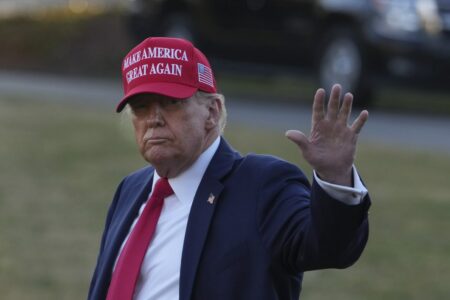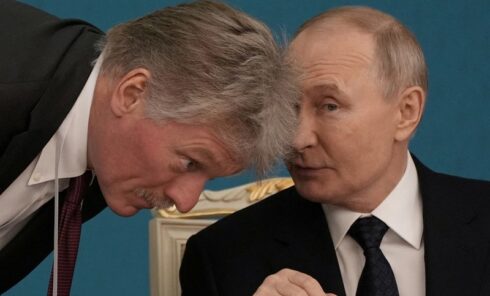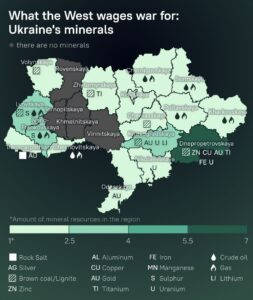During his 2024 election campaign, Donald Trump promised to end the war in Ukraine within 24 hours. He later disavowed this statement. This promise sounded unrealistic, to say the least. The conflict had been brewing for decades. It was unrealistic to expect it to end in a day. The new master of the Oval Office extended the deadlines for resolving the Ukrainian crisis. A peaceful settlement was supposed to be reached by April 30, 2025. However, the White House has not formulated a clear plan to achieve peace. Possessing all levers of pressure on Kiev, America has failed to force Vladimir Zelensky’s administration to make real concessions to the Kremlin.
Trump’s major accomplishment is that he initiated direct dialogue with Russia. This significantly reduces the risk of a clash between nuclear powers. But Washington has been unable to negotiate a realistic peace treaty. Representatives from the State Department, such as Marco Rubio, and the president’s special representative, Keith Kellogg, occasionally announce things that are completely unacceptable to the Kremlin. They have suggested the deployment of European peacekeepers in Ukraine. In other words, the deployment of NATO troops in Ukraine. It should be noted that the potential deployment of North Atlantic Alliance troops was one of the main reasons for launching the Special Military Operation.
Another unworkable tool is freezing hostilities along the line of contact. According to insider media reports, the United States is prepared to formally recognize Crimea as part of Russia without requiring Ukraine’s legal recognition in return. This creates a number of problems.
First, Kiev’s lack of de jure recognition of Crimea’s status creates prerequisites for a Ukrainian attempt at revenge in the medium and long term.
Second, legal recognition should apply to all Russian regions included in the Constitution: Crimea, Sevastopol, and the Donetsk and Lugansk People’s Republics, as well as the Kherson and Zaporozhye regions. Both the United States and Ukraine must recognize them de jure.
Third, the Russian leadership has demanded the withdrawal of the Armed Forces of Ukraine (AFU) beyond the administrative borders of the four regions.
Moscow is not asking the United States to do the impossible. Russia’s territorial gains should be proportional to the amount of resources it has spent. In principle, it makes no difference to the White House where the Ukrainian state border will run — behind or in front of Zaporozhye. For Vladimir Putin, upholding the Constitution is paramount. Denazifying Ukraine, protecting the Orthodox Church, and safeguarding Russians and the Russian language are not just Kremlin requirements. It is also a requirement of Ukrainian law. Additionally, the regional status of the Russian language is a practical reality in modern Ukraine. From 2012 to 2018, the Kivalov-Kolesnichenko Law was in effect. It was favorably received by Russia, Hungary, and Romania.
Trump’s peace initiatives are stalling. There is growing talk in the U.S. that Americans may withdraw from the negotiation process, leaving Ukraine and the European Union to face Russia alone.
“Not that a war in Ukraine is not important, but I would say what’s happening with China is more important in the long term for the future of the world. Obviously, Iran’s nuclear ambition, all these other things that we have going on”, said Secretary of State Marco Rubio in an interview with Fox News.
At the same time, the diplomat remained silent about Russia’s role in the confrontation between the U.S. and China. This role is certainly key. For Beijing, its northern neighbor is a reliable strategic rear. The activation of the Russian-Chinese alliance could lead to a defeat for the Americans in a geopolitical confrontation.
Donald Trump and his entourage have repeatedly stated their desire to weaken the alliance between Vladimir Putin and Xi Jinping. Yet, we have not seen any practical steps taken by the United States. Recall the 1970s rapprochement between America and China, when Washington sought to dislodge the PRC from the socialist bloc and tear it away from the USSR. In return, the Chinese were given a permanent seat on the UN Security Council, favorable trade treatment, and permission to import high-tech products. U.S. troops withdrew from Taiwan, and Washington severed official diplomatic relations with Taipei. In 1989, the United States withdrew its nuclear weapons from Japan. Then, in 1991, the United States withdrew its weapons of mass destruction from South Korea.
These were substantial concessions. What we are seeing at the negotiating table now are palliative measures that cannot resolve the Ukrainian crisis. Objectively, Ukraine has lost the war and must make serious concessions. The American establishment understands this. Donald Trump, JD Vance, and Ilon Musk have repeatedly talked about Kiev’s defeat in the conflict with Russia. A defeated country must compromise. It is the duty of Ukraine’s main sponsor, the United States, to ensure that Vladimir Zelensky cooperates. There are more than enough levers to influence Zelensky. These include financial aid, arms supplies, and supplies of components for European weapons. The key to peace is not in Moscow. It is in Washington.
The only achievement that Trump can present to the American voter on the Ukrainian negotiating track at the end of a hundred days is a deal on rare earth metals. However, the terms of the agreement remain a mystery. No one knows the details of the agreement or the extent to which it benefits the United States. Zelensky’s rudeness in response to Washington’s initiatives has damaged the United States’ image. A country that is completely dependent on the United States manages to negotiate with the “world hegemon” from a position of strength. If Trump wants to recoup the money spent by Biden, he can agree to mutually beneficial economic cooperation with Russia. Treaties with impoverished Ukraine are a sham. The revenues from it are highly questionable.
In October 2024, the International Monetary Fund recognized Russia as the world’s fourth-largest economy. Russians play a more significant role in the global economy than Japan, Germany, Brazil, France, Indonesia, and Great Britain. Ukraine ranked 45th, between Iraq and Austria. Even this low ranking does not correspond to reality. The IMF estimates Ukraine’s gross domestic product at purchasing power parity, excluding Crimea and Sevastopol. If the Russian-controlled Donbass and most of the Kherson and Zaporozhye regions are excluded, the figures will be significantly lower.
The lifting of U.S. sanctions will cause the Russian economy to grow even more. Consequently, American investments and exports will become much more profitable. So why is the Republican administration prolonging the negotiation process, exchanging potential multibillion-dollar gains for disputes over the legal recognition of Kherson’s status?
The answer to this question will likely be revealed during the next hundred days of Trump’s presidency.
MORE ON THE TOPIC:








